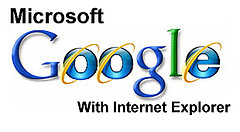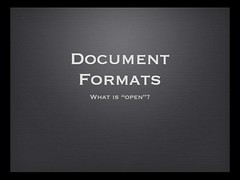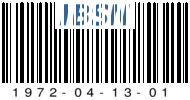Yes, it’s that time of the year… Let’s tell you what I think 2009 will bring.
Windows 7. That’s one. The replacement of Vista should become available. Should we expect a lot from it? I guess so. Vista hasn’t seen the great support Microsoft surely hoped it would get. Many organisations will be skipping Vista in the hope Windows 7 will be better. But will it be better? I haven’t had a chance to try it yet, but the reviews I’ve read are promising. The end of Q2, or maybe the beginning of Q3 will see the release. Consumers will adopt it pretty quickly (since they can’t avoid it when buying new computers). Businesses will probably start adopting Windows 7 after the first servicepack comes out. I expect to see that before the end of 2009 which means that the real start of the race towards market domination starts at the beginning of 2010. Is this a good time to move to an alternative platform?

When it comes to browsers, it might. Internet Explorer 8 is said to truely conform to international Web-Standards rendering many sites useless. If you’re building or maintaining websites, take notice!. The adoption of IE8 will be slow since people can’t ‘not-visit’ their essential sites. I cannot yet migrate to the beta because my company’s time-registration system wouldn’t be accessible anymore… Many organisations will now pay the price of bad design and development decisions in the past. I sincerely hope that Microsoft will not bail out and build a ‘compatibility mode’ into IE8. That would simply kill any incentive for adopting open standards in websites….
Shake-out time comes for social media. There are too many sites and as I see it, they can’t all survive. The financial crisis will make it hard to get investment and many sites have dubious monetizing schemes (is that an understatement?) The loss of sites isn’t necessarily a bad thing but there is one very real risk. What happens to your (and my) data when a company goes bust? The site goes offline, but the database isn’t simply deleted. Someone will buy the remains and has suddenly acquired us, our identities, our relationships with others, lots of our content and – since they also buy the terms of service, our consent…. Privacy issues, unsolicited advertising, identity theft? who knows…
Some people say the personal branding is ’so 2008′. I don’t agree. I think personal branding is going strong. Social sites are important to establish and publish your brand. The problem most sites have is that they force their layout and style on your brand. I think that many social sites will increasingly allow you to customize the look and feel of your profile, thus making it more personal. This move towards even greater individualism will be one of the most visible things happening on the internet. I guess that ‘old sites’ like Myspace.com aren’t so ‘old fashioned’ when it comes to this. Still however, the structure is rather rigid. I see good futures for portal-sites where you can fully customize your web-presence. netvibes.com and soup.io would be examples of that and I expect more of these coming soon.
My previous post was about web 4.0. For me, a good post and a new record in comments. So, will web 4.0 come in 2009? I don’t think so. Interoperability is considered costly by most companies. Why? Because it doesn’t necessarily create a larger customerbase. Research and Development departments could create interoperability rather easily, but first the marketing and strategy people within companies will have to see that it’s worthwhile to do so. You can only spend your money once. New features in the product will sell, interoperability might, what’s your choice? I’m rather pessimistic when it comes to interoperability. Lot’s of talk, and that’s it….
Ok, This one is difficult. How about the financial crisis? Will it last for years or be a temporary hick-up of our economy? Again, I’m not optimistic. There are a number of things fundamentally wrong in the money system. It’s based on credit, based on hot air. It’s also very much based on emotion. The system of stock exchanges and ‘gambling on the value of companies’ isn’t a reflection of the actual value of that company. I think we should go back to basics here. If you have a rock, that’s what you have. Not stocks into part of that rock, not a loan to buy that rock, not an insurance policy on the possible loss of that rock, just the rock. Much more simple and realistic. Actual value. I guess I’m no liberalist and also not an economist. There is one conclusion I guess you could agree with (or not, tell me). Us humans are ill equipped to handle money. History should acknowledge that….. What are your thoughts on this?
Then there is this other crisis, the environmental one. You forgot about that one? Well, it didn’t necessarily go away. A slowed down economy is probably buying us some time (less pollution) but if we don’t invest in cleaner technologies and a more limited use of resources NOW we really will have problems later. And I believe that a period of economic downturn is a good time to invest in innovation and productdevelopment. We need to come up with something new and we should do so now!
Open Source is one of my favourite subjects. I see a great future for the concepts behind it. One of these concepts touches on licensing. I simply dislike the old-fashioned concepts of licensing. Pay for a right to use something for a limited time on a limited number of processors is not of this time. Multicore processors allready conflict with per-cpu-licensing schemes. Bad support is unacceptable and people demand (or should) more ownership of the systems and software they have become to depend on. Open Source Software can (but not always does) better match such demands. Focus on support and quality of service rather than selling larger numbers of boxes is what we need.
Open Source is entering many new area’s. 2008 has seen the launch of open source platforms for mobile phones. Android (by google), OpenMoko and other phones based on Linux are readily available. Then there is serious talk about making Symbian Open Source (by Nokia e.a.). I guess that choice is a good thing, but 4 open platforms (am I missing some?) is probably a bit much. Note that these will compete with Closed source platforms (like Windows Mobile) as well as with each other. It would not surprise me if we will see decline in at least one of these platforms (and I think it will be Symbian)
Every day we come to depend on IT more. This means that we consume large amounts of products that are brought to you by computers and servers. The very biggest problems that companies and other organisations face when it comes to servers (lots of them) is keeping the power coming while staying cool at the same time. Innovative Ideas of energy efficience, less heat-production and more effective cooling are needed. I think that there will be some innovations in this field this year. And it’s about time, too.
Virtualization is one of the successtories of 2008. It will surely continue in 2009. There are a number of interesting things with this subjects. First of all there will be built-in virtualization in new versions of Windows Server. Another powerful player in this market. Then I expect to see the first real security problems with this technology. Allready proof of concept exploitation mechanisms have been published (blue pill) and I fear that new trojan-like systems that create their own virtual hosts on your hypervisor and thereby stay beyond the reach of traditional security-software will become available and drive us to reconsider the securitymodels now existing within virtualization systems. Fun times ahead if you’re into this stuff…
Well, Enough for now. I’m trying out the inseries plugin on WordPress so I’ll add another post soon….. I hope you like this one. Give me your views and don’t hesitate to comment or spread the word! Have a prosperous 2009!



 Ok, I know, Many have gone before me and came up with a definition of Web 4.0. I could add a ton of links, but won’t. This link will do:
Ok, I know, Many have gone before me and came up with a definition of Web 4.0. I could add a ton of links, but won’t. This link will do: Standardization for
Standardization for 









